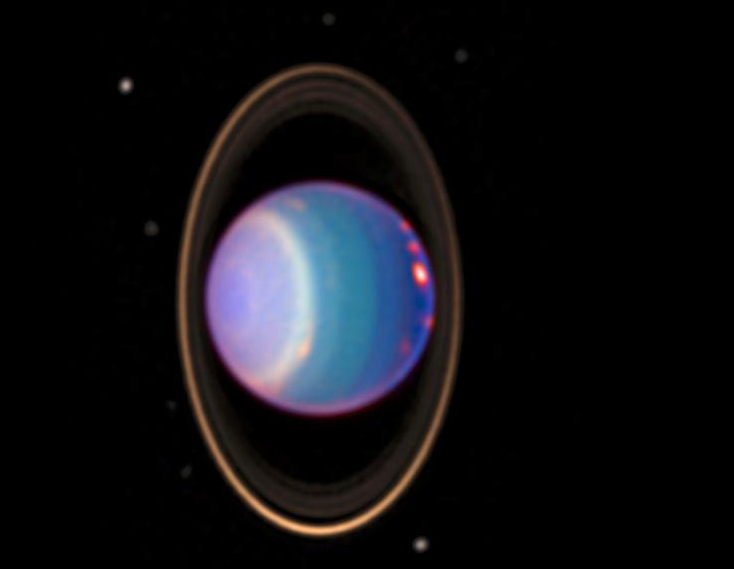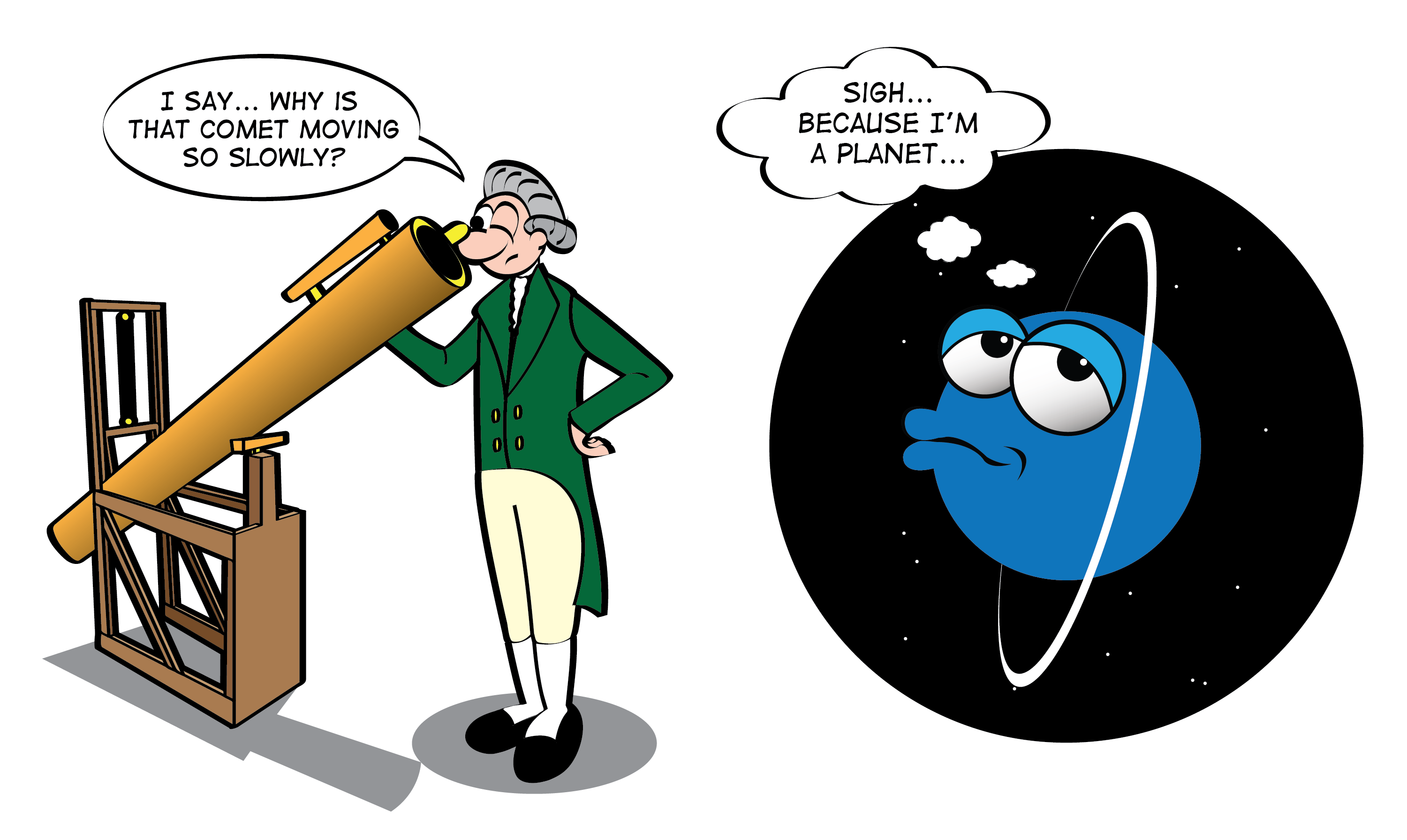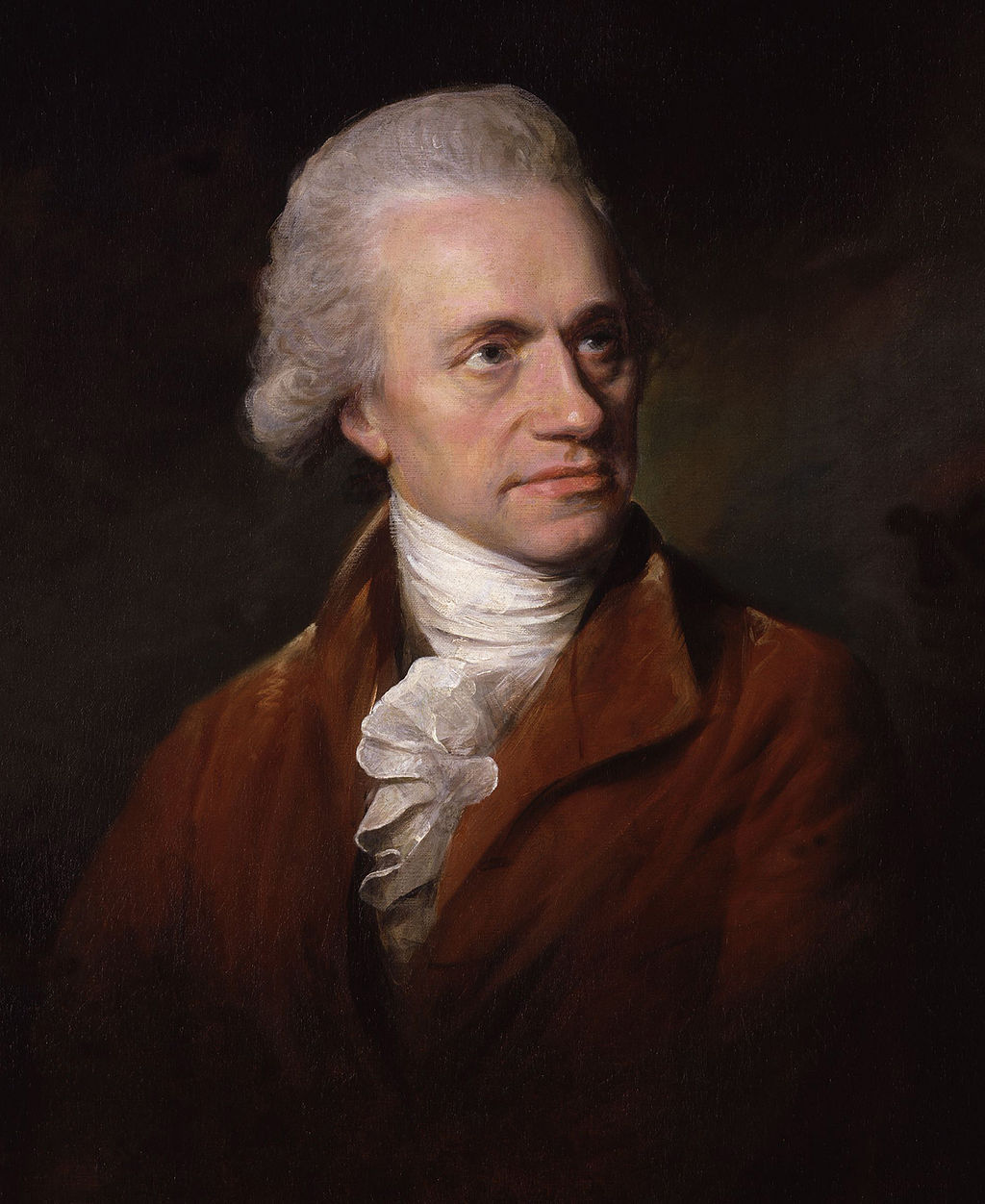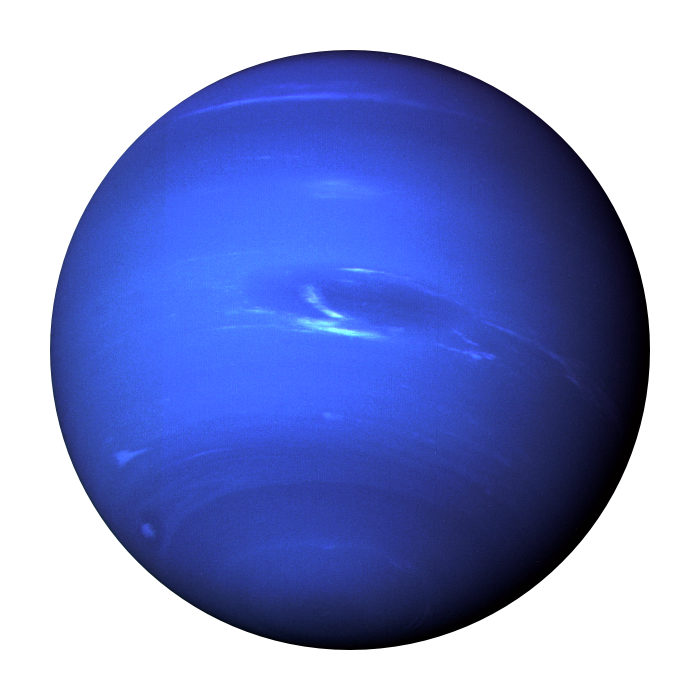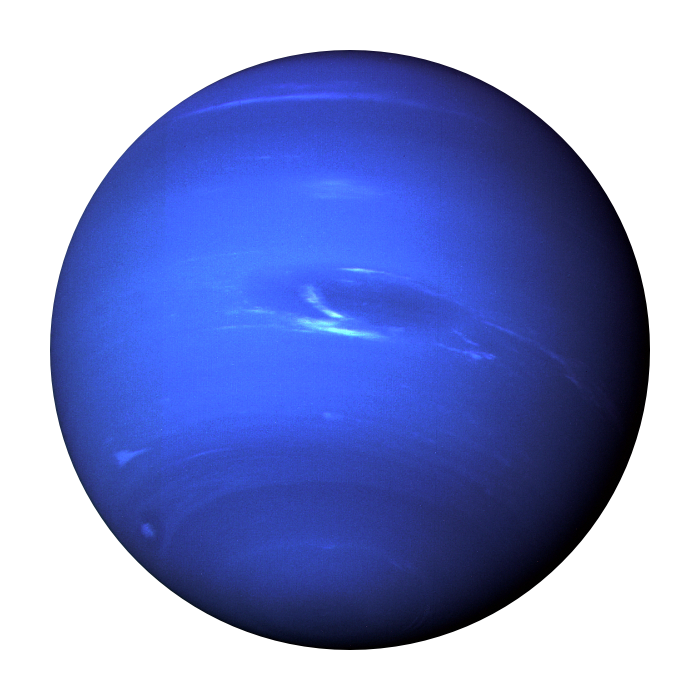Disclaimer: This material is being kept online for historical purposes. Though accurate at the time of publication, it is no longer being updated. The page may contain broken links or outdated information, and parts may not function in current web browsers.
Right in Plain Sight
If you know where to look, and your eyes are strong enough, you might be able to see Uranus without a telescope or binoculars. It’s not very bright and barely large enough, but it does sometimes appear in our night sky.
In spite of this, Uranus wasn’t officially discovered until 1781. Ancient Babylonians knew about all of the planets from Mercury to Saturn long before that. Why did it take so long for people to find lonely Uranus?
What to Call It?
Actually, it wasn’t a matter of finding it. It was a matter of knowing that it was a planet. The story of Uranus’s discovery is full of people not realizing what they were seeing. People may have seen Uranus as early as 128 B.C. but, each time they saw it, they said it was a star.
In fact, the man who we credit with discovering the planet got it wrong too! Sure, he knew it wasn’t a star, but he didn’t think it was a planet either. On March 13, 1781, William Herschel—an amateur astronomer—located an object in the night sky. After measuring it, he determined that this object moved too quickly to be a star. It had to be a comet, he thought.
A Great Debate
Herschel told other astronomers about the new “comet.” They were confused. The problem was that a comet as bright as this object would have to be pretty close to the sun, but a comet that close to the sun would have to be moving through the sky much faster than this thing was moving. It also didn’t have a coma or a tail like comets have.
These other astronomers began to study the object too. They figured out that its orbit was pretty close to circular—just like the orbit of a planet. That was enough for most of them to call it a planet. By 1783, Herschel also accepted that it must be a planet. After he tried to name it after King George III, the planet was named Uranus, after the Greek god of the sky.



